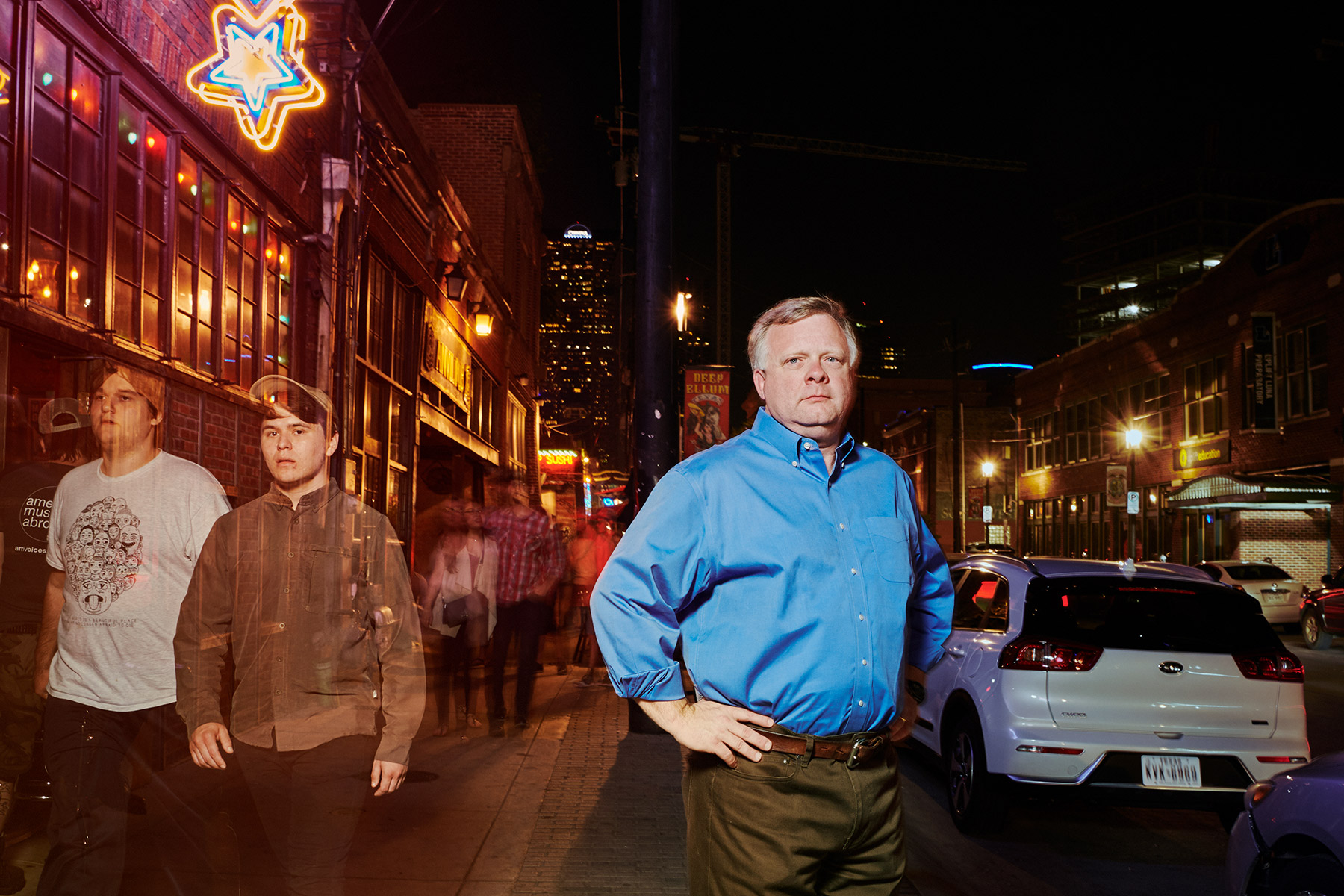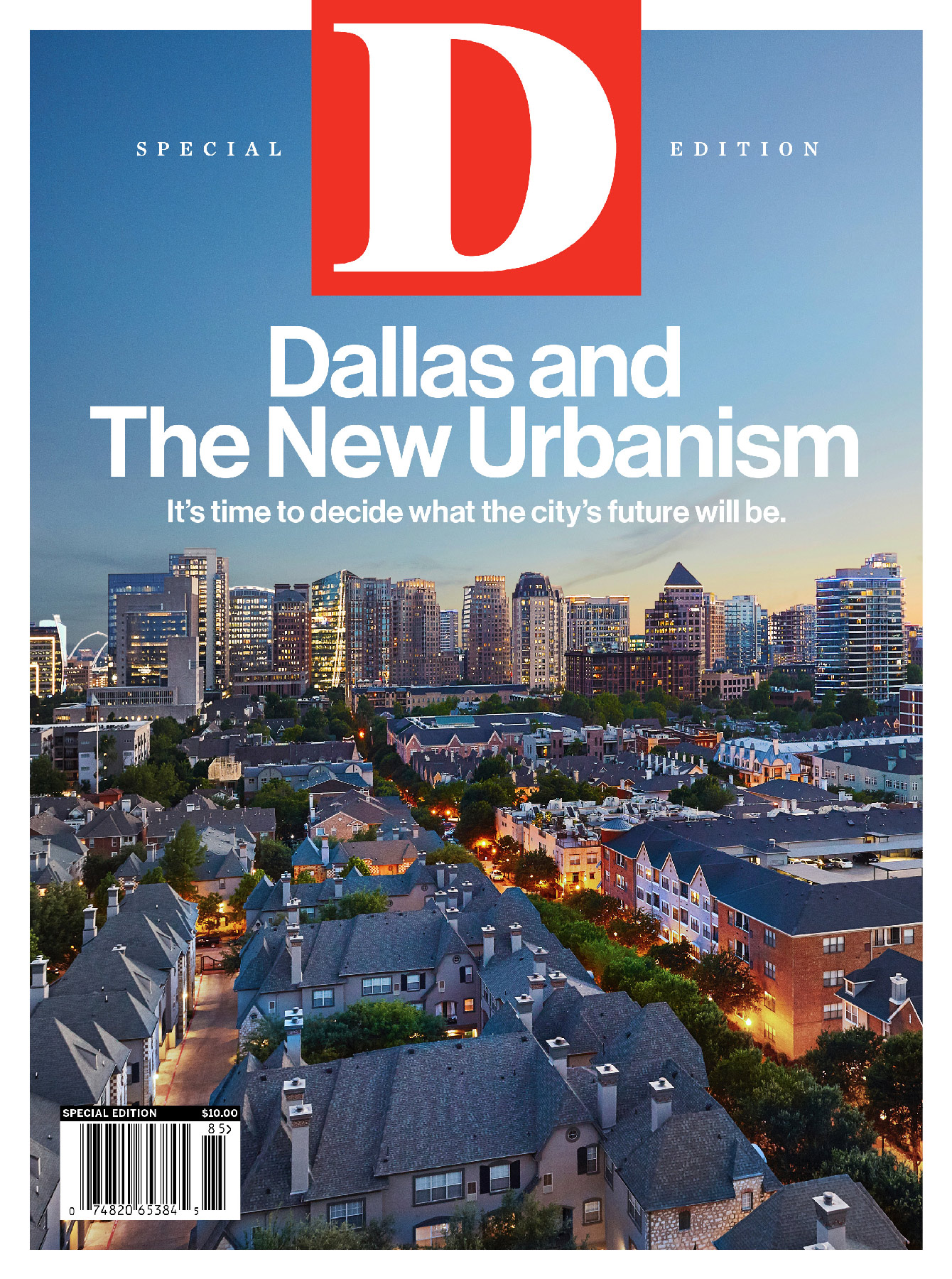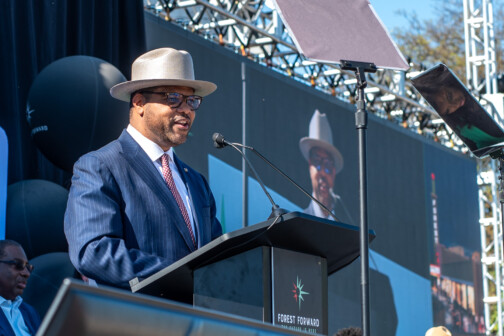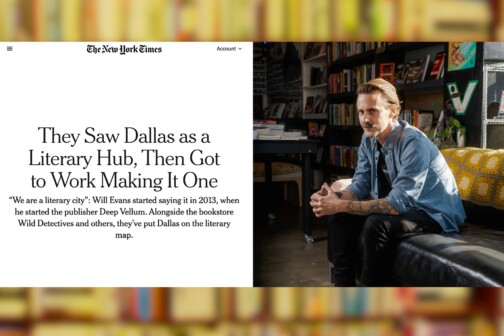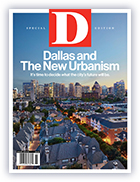 This piece is a feature from our special edition, Dallas and The New Urbanism. The magazine examines the successes and pitfalls of the urbanist movement in a region well known for its dependence on the automobile.
This piece is a feature from our special edition, Dallas and The New Urbanism. The magazine examines the successes and pitfalls of the urbanist movement in a region well known for its dependence on the automobile.
I began my real estate career as a land broker. I enjoyed seeing a farm turn into a subdivision, taking a blank canvas and saying, “What’s it going to be?”
However, there was something frustrating about the business for me. For the first 15 years of my career, the mantra was “cut the smallest lot you can and cram as much as possible onto the land.” Who cares about sidewalks? Who cares about the neighborhood? We were building stuff to make money. In those early years, I didn’t have time to worry about it.
After land brokering, I went into tenant representation. I was working 90-hour weeks, flying all over the country, looking for large parcels for industrial buildings. I had a family and a mortgage. I didn’t have time to be creative.
By 2001, I had moved into development of strip centers, big-box stores, and industrial buildings on the edge of suburban sprawl. Then, during the crash of 2007 to 2011, something happened. The pace of sprawl slackened, and I thought it might be time to do something creative.
When I told my investors that I wanted to do infill projects, they thought I was having a midlife crisis. They were probably right. But they let me do it. There was only one problem: I had no idea what I was doing.
So I talked to people. I spent time in Deep Ellum for about a year asking, “If you owned Deep Ellum, what would you do?” I learned people wanted more lighting and improved safety. They wanted to retain the neighborhood’s artistic identity. They wanted more than just more bars. Then architect David Stocker gave me a copy of Jane Jacobs’ book The Death and Life of Great American Cities.
Some of Jacobs’ ideas were familiar, like needing great sidewalks and a “visual terminus.” Other ideas felt brand new, like a city with a soul cannot be planned, it must grow organically; and that some amount of chaos is good because people are free to try new things, keeping ones that work and discarding the others. It reminded me of a time in the 1980s when I was trying to sell Dallas real estate to an investor from Montreal. “Most of this has no soul,” he said. Right then, I started musing how developers can enhance the soul of a community rather than just build cool buildings.
When I embraced Deep Ellum with the attitude of “I don’t know what I’m doing,” it was amazing what others taught me. I learned to turn down lucrative leases to preserve the mix of uses in the neighborhood. I recruited businesses because I thought the neighborhood needed them, rather than seeking who could pay the most money. I gave sweetheart deals to a couple of tenants who represented the community artist ethos.
I was attracted to Deep Ellum because I thought we could make money, but the question quickly became, What is the best way to make money? That’s where the developer mentality did not work. I told my investors, “We are going to focus on enhancing the community. If we build a vibrant community, our property should not only increase in value, it should sustain that value over time.”
We have made a good return for our investors, but it wasn’t all about that. We worked alongside others to strengthen a neighborhood. I’m now on a hugging friendship basis with more people than I even knew before we invested in Deep Ellum. I am more connected to our great city. I feel more alive. I am greatly blessed.
As told to Peter Simek.
Head to this link to buy a copy of the issue and learn more about our July 11 urbanism symposium at the Dallas Museum of Art.


